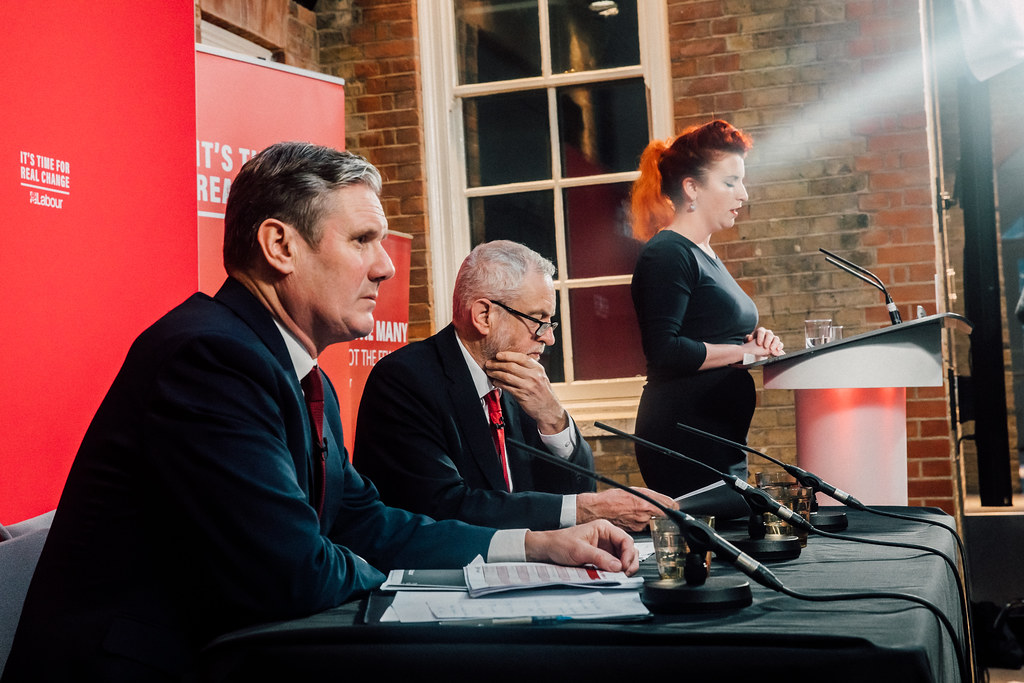
The Russian invasion of Ukraine has again enabled Keir Starmer to cast himself in a different light to his predecessor, yet despite this and other chances for Starmer to capture the limelight, little advance has been made by the Labour party. Her Majesty’s Opposition still only has a minor 2-point lead in most opinion polls. The Labour brand is yet to appear to have grasped the electorate in the manner required to replicate a 1997 Labour landslide. No doubt, the current leader of the opposition is a vast improvement on the last, due to the fact he provides analytical interrogation of the thus far un-interrogable Prime Minister who manages to shake any genuine questioning of his government, his practices as a public servant or about his bohemian private life. But is this enough to win over an electorate?
Keir Starmer’s attempt to grip the politics of the moment, to show how his analytical skills trump the bumbling of the benches opposite him, has not furthered his party as one would think. He is a good man, a commendable man, a man of reason and intellect but he is at risk of forgetting to captivate the hearts and minds of the British people. Indeed, Starmer does offer credible opposition and has arguably made Prime Minister’s Questions mandatory viewing, but plenty of meticulous lawyers have followed before him (a certain Tony Blair being one of them) but it was not their lawyering that won them government. Answering and asking scrupulous questions is not how the current inhabitant of 10 Downing Street excelled. Being an effective pundit on the government of the day is no guarantee of eventually winning government.
Furthermore, Starmer is yet to find his ‘Clause IV’ moment, and whilst many viewed his reform of the Labour leadership elections as a game-changing moment, it was not. The move away from ‘one member one vote’ back to an electoral college is an unclear change that is irrelevant to most and hard to understand. The change does not mark a clear sign of innovation to the general public even with the Labour conference lectern donning the not-so-subtle ‘A New Leadership’ title. Internal party battles do have a place in domestic politics, but Starmer must not forget the task of winning government.
The opposition cannot underestimate how the PM seizes the imaginations of many, gaining an unprecedented win in the normally Labour London, advancing the destruction of the ‘Red Wall’, and all this with a less than perfect reputation. To be a credible candidate, Starmer needs to rely on more than just the downfalls of the current government. The opposition must be the one to flag an issue before it hits crisis stage, otherwise, they risk filling the role of commentating on current affairs in a political landscape that is already filled with political commentators who believe they are right (this is in no way a reference to this wonderful article).
The Prime Minister told the Defence Select Committee in November of last year “that the old concepts of fighting big tank battles on European landmass are over”, how wrong could he have been. Irrespective of this, the PM can get away with simply jumping from issue to issue or crisis to crisis. It may be unfair, but it is the nature of the game. Labour must prove themselves to the electorate; it is easier to stay in government than it is to win it.
Make no assumptions, this is in no way a bash of Starmer but a search, a wild-goose chase even, for something better, something radical. Not radical on the left or right but profound in thought with an innovative vision for the future something every politician claims to have. Yet, the Leader of the Opposition has not shown this, and it is certainly not a quality of the flip-flopping Prime Minister who moves his policies with the political weather.
There is not a shortage of issues Starmer, and his cabinet, can lead the way on. A reformed system of devolution perhaps moving towards Federalism, as championed by Gordon Brown and his newly formed pressure group Our Scottish Future, is growing in popularity. This is as separatist parties are gaining electorally, the change may boost Labour’s electoral chances in both Wales and Scotland, areas which they have relied upon so heavily to win government in the past. Currently, only one Labour MP remains in Scotland. Or even drug reform, an area that has proven popular in Canada under Justin Trudeau with the added benefit of less expenditure on drug-related crime.
I am merely a commentator and not the one who ought to think about what policies will cast them as the credible candidate, but there is an abundance of possibilities for Starmer to grasp the imaginations of the electorate. Yes, we are likely two years away from an election so a full policy platform is not a current necessity, but a hint would be nice or Starmer risks sinking into irrelevance. Most oppositions stay in opposition, it is the rare winning ones that define their age: perhaps the ship has already sailed for a Starmer led majority government.



Average Rating